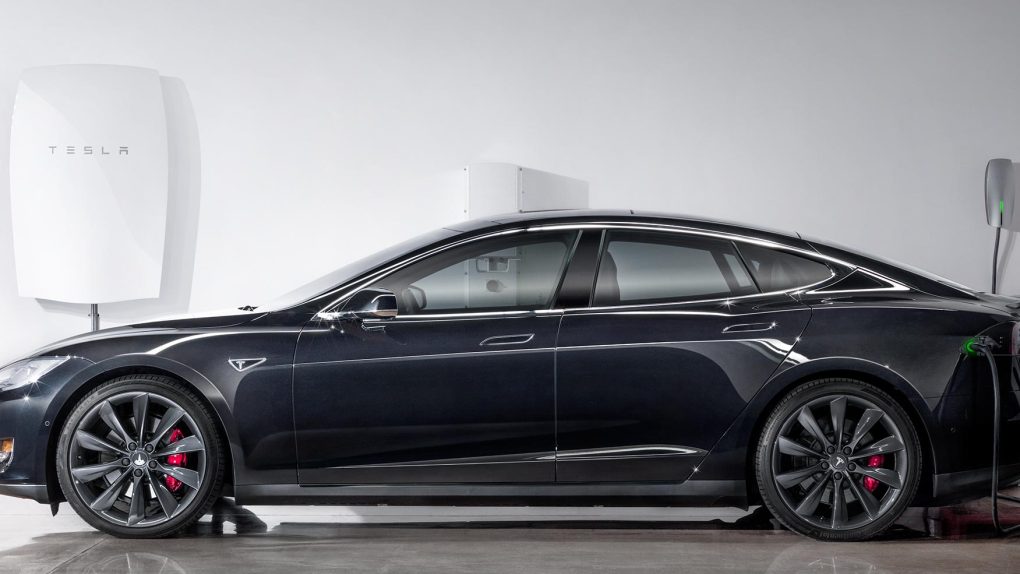Late on Thursday, Tesla finally unveiled a brand new product, one that’s not a car but was detailed long before Tesla CEO and co-founder Elon Musk took the stage at Tesla’s Design Studio to announce it. The Tesla home battery, which lacked an official product name in all the rumors and reports that preceded the keynote, will be known as the Powerwall. And the device can already be reserved online for a summer delivery.
DON’T MISS: This sleek iPhone 6 case heals itself from scratches, and it’s less than $30 on Amazon
Even though the Powerwall’s existence was not a secret, some of the information on it wasn’t accurate, especially when it comes to pricing. The Powerwall will cost either $3,000 (7k/Wh model) or $3,500 (10kWh version), and that’s not taking account installation costs and any incentives that buyers might receive from local, state or federal governments.
Tesla wants its battery to be highly functional, but also beautiful. The battery is significantly smaller than initially believed, and can be mounted on walls, either inside or outside the home. The battery measures just 130 x 86 x 18 cm (52.1″ x 33.9″ x 7.1″) and weighs 100kgs (220lbs).
“The key thing for the Powerwall on the consumer side is it’s beautiful, it fits on the wall, you can put it on the outside wall of your house,” Musk said. “It’s only about 6 inches thick and a few feet across and a few feet tall.”
The device will work with solar cells, and will let users sell back energy to the grid. Tesla’s vision is rather bold, saying that users could be “totally free of the grid” if the wanted.
Each battery can operate from -20C (-4F) to 43C (110F), and comes with a 10-year warranty. Buyers can add up to nine batteries in their homes, for a total output of 90kWh output. However, the Powerwall’s battery technology is different from the car’s battery tech, the exec revealed.
Furthermore, each battery is connected to the Internet, so the company’s software can monitor the battery and provide thermal regulation, safety checks and energy optimizations. Musk further revealed that the company can work with utilities to shift power around.
On top of home batteries, Tesla will also sell power packs to utilities, which will be “infinitely scalable” starting at 100kWh and going up to multi-gigawatt-hour packs.
Musk also revealed that the company’s non-car related battery product will be branded as Tesla Energy products, suggesting the company will have a secondary division dealing with home and utility batteries.
More details about the Powerwall, including full specs, are available on Tesla’s website, at this link.




